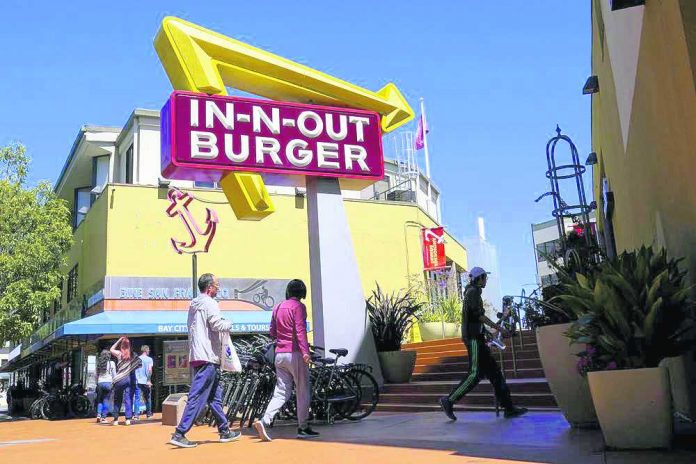By Don Thompson
Associated Press
(AP) — Since she came to California from Mexico 24 years ago, Maria Bernal has been supporting her family by often working two jobs at fast food restaurants.
But she says she wound up living in a small Kia with her two youngest children, then ages 3 and 15, for six months after she lost her housing in 2019 when one of her employers began paying her minimum wage for eight hours even when she worked a 16-hour double shift.
Union organizers and other advocates say such wage theft and other exploitation is common in the fast food industry, particularly for women and racial minorities who make up many of California’s more than half-million fast food workers. The industry denies such abuses are widespread.
Bernal and more than 100 others who recently rallied outside the state Capitol are pinning their hopes on groundbreaking legislation that would give fast food workers increased power and protections.
The proposal awaiting final action before the California Legislature adjourns Wednesday would create a new Fast Food Council made up of four workers’ delegates alongside four employers’ representatives and two state officials that would set minimum standards for wages, hours and working conditions in California.
Bernal said she hopes the council would give workers like herself “a seat at the table where they will respect us more and not allow wage theft to happen, and also importantly that we won’t be afraid of retaliation.”
Restaurant owners and franchisers say the proposal would drive up the price of fast food. They cite an analysis they commissioned by the UC Riverside Center for Economic Forecast and Development that puts the price increase at 7% to 20%.
A late wage cap added to the bill would keep the increase on the low end of that range. Late amendments limit any minimum wage bump to $22 an hour next year, with cost of living increases thereafter, while the statewide minimum will be $15.50 an hour.
Other late amendments mean the council would also have to be approved by a petition signed by 10,000 fast food workers, and the council would now disappear after six years unless it is renewed.
Matthew Haller, president & CEO of the International Franchise Association, dismissed the last-minute revisions as “an attempt to put lipstick on a pig.”
An earlier version cleared the Assembly in January with no votes to spare after falling short last year, and the revised bill is awaiting consideration in the Senate.
Though California’s effort would be broader, a wage board created by New York’s governor in 2015 led to an increase in fast food wages there, and similar efforts have been tried by some cities. The left-leaning Center for American Progress says that what also are known as workers’ boards, worker standards boards or industry committees could combat economic inequality along with racial and gender pay gaps.
“If we are successful here, workers in Florida, Texas, New York, even Idaho will be heartened and they can replicate our successes,” Democratic Assemblyman Alex Lee said at the workers’ rally.
California’s measure would cover fast food restaurants with at least 100 establishments nationally.
It grew out of the decade-long Fight for $15 and a Union minimum wage movement and efforts by labor unions to organize fast food workers in California and nationwide.
“This is more than just a labor fight. This is a fight about racial justice, this is a fight about gender justice,” said Joseph Bryant, executive vice president of the Service Employees International Union behind the drive. “Eighty percent of the workers are people of color who work in fast food. Two-thirds of the workers are women who work in fast food, and these workers are being exploited.”
Fast food workers in California are paid nearly $3 an hour less than comparable workers in other service sector jobs, according to a joint study released this month by Harvard and UC San Francisco.
Bernal hopes the California law and the ongoing effort to unionize fast food establishments will one day lead to benefits like paid vacations, medical coverage and a retirement plan. She filed a wage claim earlier this year with state regulators seeking $160,000 in back wages and penalties, while her son is alleging child labor law violations and threats by a restaurant manager.




















